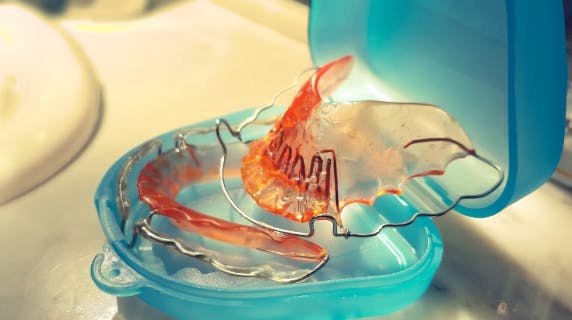WHAT TO EXPECT WHEN GETTING A RETAINER, ALIGNER OR NIGHTGUARD
Like many decisions you make in life, it’s often the small things that can make the difference. This is just as true for a retainer, aligner or nightguard. Understanding a bit more about what’s involved in getting an appliance made can help you manage your own expectations and avoid any late surprises or disappointments.
Getting a retainer?
A retainer may be a fundamental part of your treatment for aligning your teeth and one that your dentist will guide you on as part of your orthodontic treatment. Retainers keep your teeth in place following orthodontic treatment and each retainer is custom made to fit around your teeth. Your dentist will guide you through what to expect as part of your treatment.
Getting a retainer or aligner made
Retainers are custom molded to fit the exact positions of your teeth. An impression of your teeth will be taken by placing dental putty into an appropriately sized dental tray and then pressing this over your upper and/or lower teeth. Once removed, the impressions will be an exact mirror of your teeth and gums. These impressions are then carefully filled with a hard-setting material, and produce a perfect model of your teeth just like a jelly mold. The retainer is then molded over the model and finished to fit you comfortably. Some dentists use advanced scanners to generate the model. The next part is over to you to look after your smile.
Retainers are designed to maintain your smile whereas aligners are first used to move your teeth into position. Both are part of your orthodontic treatment following an assessment that will involve an examination and some or all of the following: x-rays, digital scans, photographs and impressions of your teeth. These will then be used to develop a treatment plan to gradually move your teeth into position over a number of steps.
Wearing my retainer or aligner
It’s important to wear and care for your retainer or aligner. Keep wearing your retainer or aligner, following your dentist’s advice and asking for their advice if you feel any soreness or discomfort.
Not wearing your retainer or aligner as advised may let your teeth move out of position. Your dentist may advise you to wear your retainer or aligner all the time other than when eating and cleaning. After a while, they may advise you to just wear a retainer in the evenings and at night. All the way through, regular cleaning and good oral hygiene is important to avoid the build up of bacteria that can cause bad breath and make your removable dental appliance discoloured or stained. You can find out how best to clean and care for your retainer or aligner here.
Is it the same process to get a nightguard made?
Unlike retainers that keep your teeth in line, nightguards provide a barrier to protect your teeth from grinding. Your dentist will advise on the process however it’s very similar to the retainer process where a mold will be taken of your teeth.







